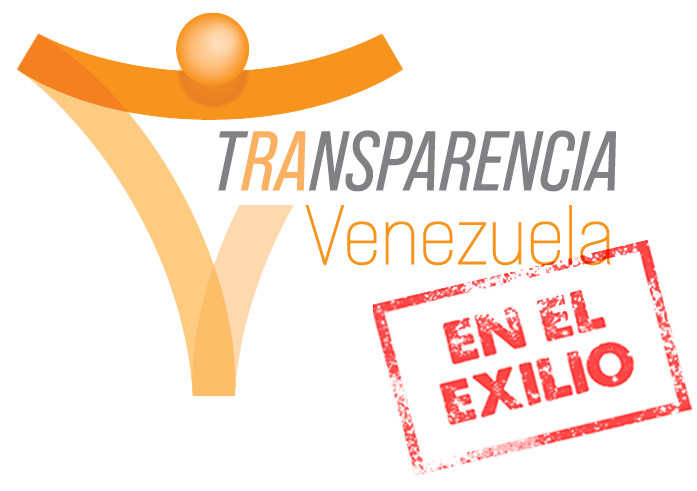Johannesburg. 29 July 2010: A group of civil society organisations from across the globe have expressed alarm about systematic restrictions on civil society freedoms of expression, association and assembly in Venezuela, including persecution of human rights defenders. On 14 July, President Chavez had called for a criminal investigation of human rights organizations accused of taking funds from the United States government for the purpose of destabilizing the Venezuelan government. The call for an «in depth investigation» into the funding sources of Venezuelan NGOs is seen as the latest in a long series of growing restrictions on human rights, particularly the freedom of expression.
Harassment tactics, including public threats and judicial proceedings, are regularly used by the government of Venezuela to silence critics and undermine human rights defenders and journalists. Earlier this year, a member of the opposition political party – Oswaldo Alvarez Paz – was arrested for commenting on Venezuela’s involvement in the drug trade on charges of «conspiracy against the government». He is currently facing a possible two to sixteen year sentence. On 11 June, journalist Francisco Perez was given a 3 years and 9 months prison sentence, stripped of his professional certification, and ordered to pay a nearly $ 20,000 fine for publishing an article on corruption in the local Valencia government. Reports of threats, harassment, and abuse on the ground continue as many activists and members of the media are forced to operate in dangerous circumstances.
The latest government measures seek to sever NGOs from important international cooperation by branding such activities as violations of Venezuelan autonomy and sovereignty. International cooperation has served the Venezuelan people for over twenty years and remains essential for the protection of human rights and empowerment of civil society. The right to receive international cooperation is firmly established in Article 13 of the UN General Assembly Declaration on the Rights of Defenders and emphasized as an integral means of protecting human rights in the UN General Assembly Resolution 53/144. Many Venezuelan rights organizations cannot survive without international cooperation and funding. By restricting access to international cooperation, the Venezuelan government is not only working counter to its international obligations and the protection of freedom of expression enshrined in the Venezuelan Constitution, it is also doing its citizens a disservice by destroying a valuable resource.
We urge the Venezuelan government to take immediate steps to protect the civil rights of its citizens by:
1) Recognizing and acknowledging the value of international cooperation and human rights works as a means to ensure civil freedoms and stability;
2) Putting a stop to the harassment, persecution, and threatening of human rights defenders by demonstrating a commitment to protect the rights and safety of all citizens;
3) Ceasing efforts to discredit human rights organizations by ending the accusations and criminal investigations of organizations engaged in international cooperation; and
4) Rejecting the International Cooperation Law which will further restrict civil freedoms and human rights.
We, as representatives of civil society, stand firmly opposed to any policy of official harassment and a failure to protect human rights defenders.
Note for editors:
The civil society organisations who jointly issue this statement are:
ARTICLE 19 is an independent human rights organisation that works around the world to protect and promote the right to freedom of expression. It takes its name from Article 19 of the Universal Declaration of Human Rights, which guarantees free speech.
CIVICUS: World Alliance for Citizen Participation is a global movement of civil society with members and partners in over a hundred countries. The Civil Society Watch programme of CIVICUS tracks threats to civil society freedoms of expression, association and assembly across the world.
Development Services Exchange (DSE) is a national NGO umbrella body of the Solomon Islands established in 1984 to facilitate and coordinate development services for NGOs and their partners.
National Association of Non-Governmental Organisations (NANGO) is a community of Zimbabwe NGOs, committed to strengthening, representing and coordinating the work of NGOs in Zimbabwe.
Nigeria Network of NGOs (NNNGO) is the first generic membership body for civil society organizations in Nigeria that facilitates effective advocacy on issues of poverty and other developmental issues. Established in 1992, NNNGO represents over 800 organizations ranging from small groups working at the local level, to larger networks working at the national level.
Red Nicaraguense por la Democracia y el Desarrollo Local (RNDDL) is a network aimed at promoting inclusive local development in Nicaragua based on gender equity, opportunities for all ages and multiculturalism.
Scottish Council for Voluntary Organisations (SCVO) is a national association for civil society in Scotland.
Sinergia: Venezuelan Association of Civil Society Organisations promotes and advocates freedom of association and participation.
For more information please contact CIVICUS:
Devendra Tak ( [email protected] ), Communications Manager
or Adam Nord ( [email protected] ), Civil Society Watch Programme Officer,
Office Tel: +27 11 8335959
